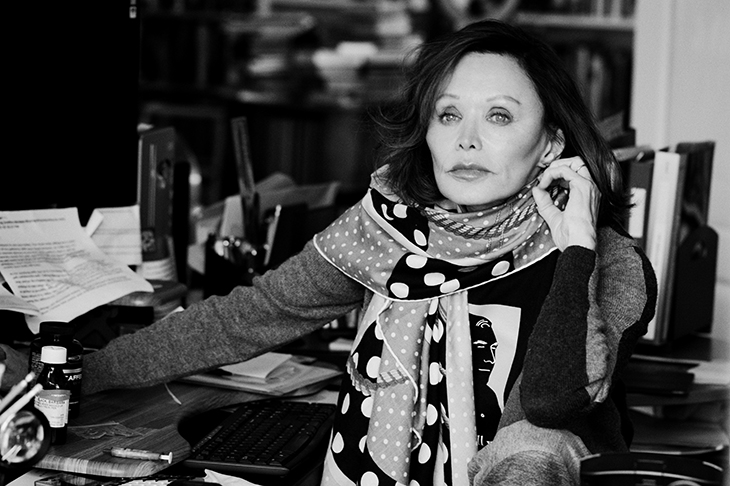If this book becomes a Netflix blockbuster, as it surely must, Barbara Amiel presents us with an opening image. She describes, during a visit to see her husband Conrad Black in prison, watching a Monarch butterfly rise above roadside debris:
You couldn’t miss it in that bright early morning sunscape of trash cans and crumpled paper cups, so intense the colours and so large its wings as it did a parabola over a little triangular patch of wildflowers growing off to the side of the service area at Turkey State on Interstate 95.
Let me have a think about whom that might metaphorically represent. We find out later:
This book is simply an account of a woman’s life that, like a migrating Monarch,ran into a late autumn storm that continued with droughts and predators to this, the very last flight.
Her artfulness is one of her many winning qualities in this book.
She is beautiful but self-destructive, and literally cuts off her nose to spite her face
It is described as a memoir, but it is more of an operatic reckoning. As ever, Amiel understands her enemies and she pre-empts criticism. Is she a femme fatale? Of course she is. She writes that she has ‘an inability or disinclination to walk into a room in any way but that of Lucia di Lammermoor at curtain call wearing her bloodstained dress’.
I first came to know her through the late editor of The Spectator, Frank Johnson, and better when I worked at the Daily Telegraph as deputy editor under Charles Moore’s editorship. My favourite vignette from Johnson’s East End childhood was that he was brought in as a child extra to the Royal Opera House and found himself on occasion wedged happily but suffocatingly in the bosom of Maria Callas. This is rather how I felt reading this book.







Comments
Join the debate for just £1 a month
Be part of the conversation with other Spectator readers by getting your first three months for £3.
UNLOCK ACCESS Just £1 a monthAlready a subscriber? Log in